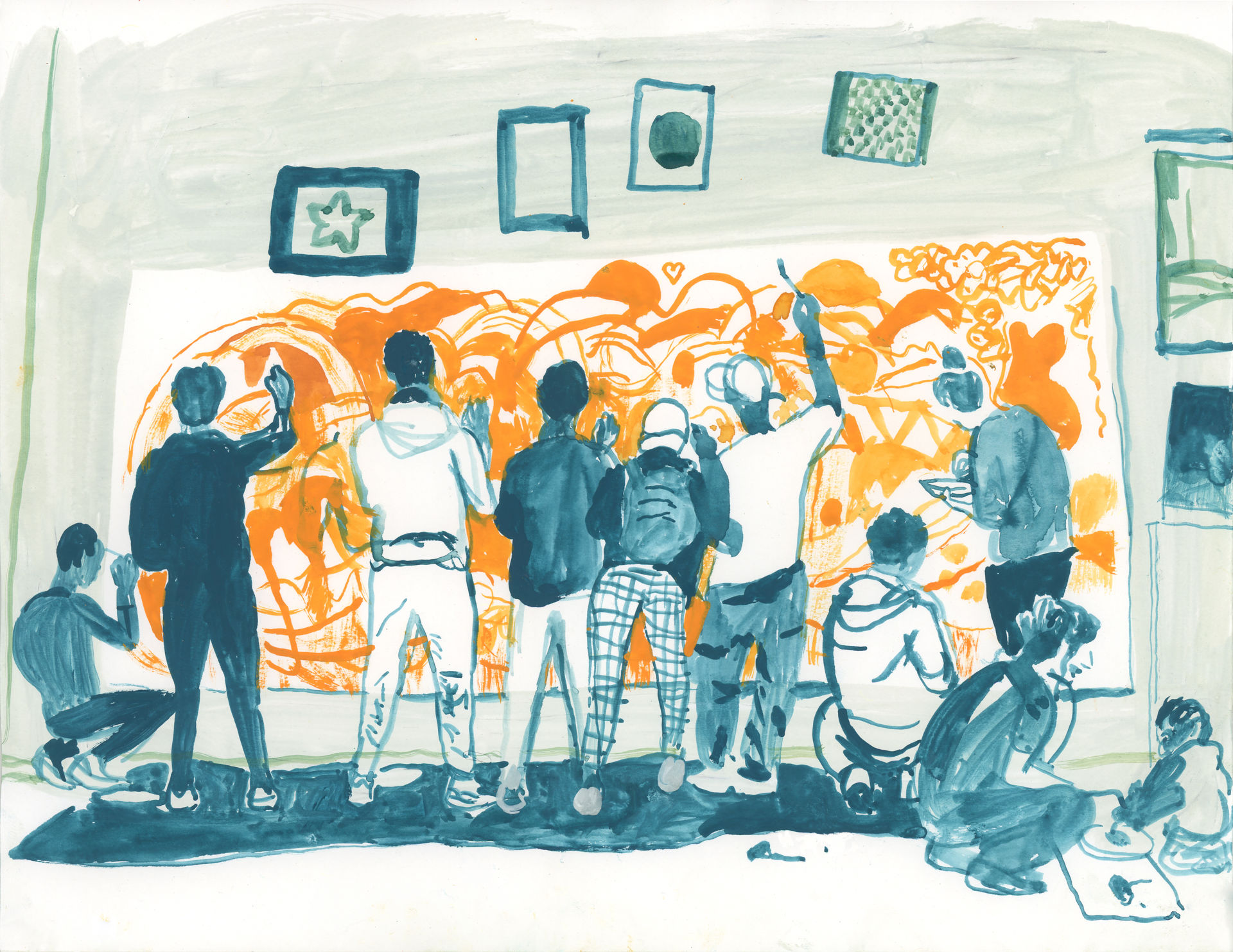The number of mental health consultations and new patients admitted to the Médecins Sans Frontières (MSF) Comprehensive Care Centre (CAI) for victims of extreme violence, based in Mexico City has increased significantly in the last six months. MSF attributes the increase to continued violence at the hands of various armed groups—both organised crime groups and security forces—along the migration route through Central America and Mexico, fueled by a slew of harsh changes to immigration policies by the US and other governments in the region. As needs increase, MSF urges public entities and non-governmental organisations to strengthen assistance to people in Mexico who have been victims of violence and are seeking safety.
In the first quarter of 2025, MSF teams provided 485 individual mental health sessions to patients at the CAI—migrants in transit through or stranded in Mexico and Mexican citizens. This represents a 36 percent increase compared with the number of sessions provided in the three months prior. Throughout 2024, MSF provided an average of 300 to 350 individual mental health sessions each quarter. Between January and March this year, the most common conditions people presented with were post-traumatic stress disorder (48%) and depression (39%), as well as acute stress reactions (7%), grief, and anxiety.
A migrant from Ghana, who reports being kidnapped, chained, and beaten in his home country, and nearly drowning while attempting to cross the Atlantic, poses for a photograph at the Comprehensive Care Center run by MSF in Mexico City. © Bernat Parera/Reuters
A transgender man from Venezuela, who reports having been kidnapped by people he thought he was meeting for a job in the northern Mexican city of Monterrey, hugs a punching bag at the Comprehensive Care Center run by MSF in Mexico City. © Bernat Parera/Reuters
A migrant from El Salvador, who reports having been sexually abused and threatened with death both in his home country and in Mexico, hides his face behind a dreamcatcher, a symbol of protection against bad dreams, while posing for a photograph at a Doctors Without Borders Comprehensive Care Centre. © Bernat Parera/Reuters
A woman from Venezuela, who reports having been raped by a group of men after crossing the Darien Gap, in Panama, hugs her daughter at the Comprehensive Care Centre run by MSF in Mexico City. © Bernat Parera/Reuters
A woman from Venezuela, who reports having been raped by a group of men after crossing the Darien Gap, covers her face with Marigold flowers (Cempasúchil). © Bernat Parera/Reuters
A Colombian migrant and former owner of a medical clinic says he was injured while attempting to escape from kidnappers who later succeeded in abducting him. He poses for a photograph behind a curtain and with crutches at the Comprehensive Care Centre run by MSF in Mexico City. © Bernat Parera/Reuters
The CAI opened in 2016 to provide comprehensive care for survivors of extreme violence and torture, including medical care, psychology sessions, and physical therapy, among other services. The goal is to help patients regain their autonomy and heal physically and emotionally. Most people receive three to six months of treatment, and there are between 30-50 patients admitted at any one time. In 2024, MSF teams identified 4,500 victims of moderate to extreme violence through our projects in different points of attention in Mexico or through partners. We admitted 186 to the CAI for comprehensive treatment, others were provided care through mobile and fixed clinics or referred to other organisations for care.
Although most patients admitted are migrants , since the last quarter of 2024, the CAI has also focused on treating Mexican patients who are displaced or affected by violence occurring in various parts of the country. This coincides with a significant increase in admissions to the CAI during that period—64 in total, which represents an increase of more than 50 percent over the usual quarterly average of 40.
Between January 2024 and February 2025, MSF teams in Mexico, Guatemala, Honduras, Costa Rica, and Panama treated nearly 3,000 survivors of sexual violence and provided more than 20,000 individual mental health consultations, many of them precipitated by violence, displacement, and difficulties in the migration process.


